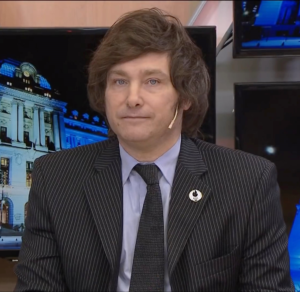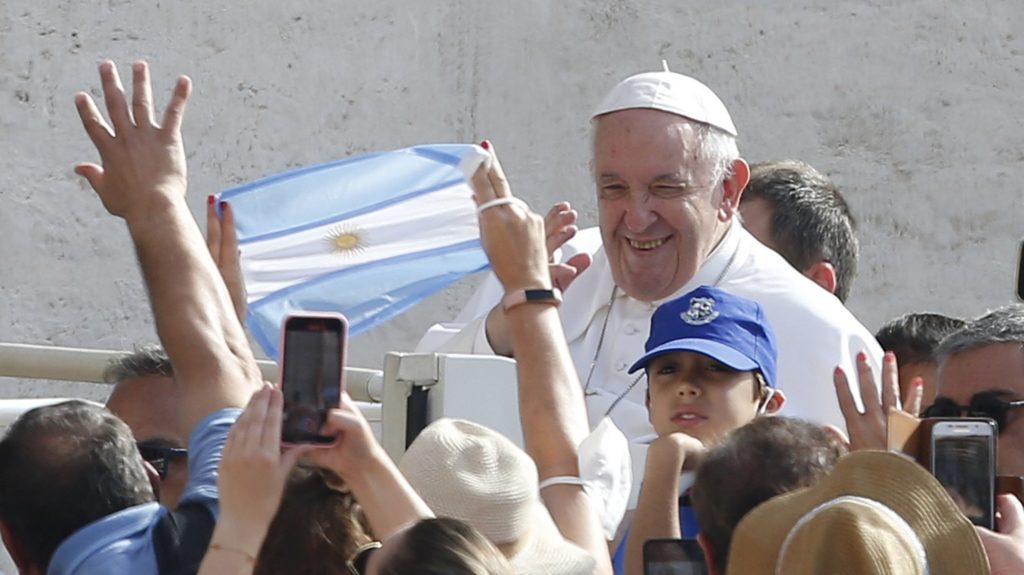ROME – More than 500 years ago, a local politician in a place that should have been a stronghold of papal loyalty actually was driving the incumbent pontiff, Pope Pius II, to distraction.
So vexed did Pius become, in fact, that for the one and only time in the long history of the Catholic Church, he performed a “reverse canonization” – i.e., an infallible declaration not that a particular soul is in heaven, but rather that he’s destined for hell.
For the record, that April 27, 1462, decree – also known as an “infernal canonization” – didn’t bring the politician in question, Sigismondo Pandolfo Malatesta, the Lord of Rimini, then part of the Papal States, to heel, but it did apparently make Pius II feel better, at least judging from his memoirs.
Though it’s impossible to predict, if you’re looking for a moment when another pope might dust off that precedent and wield another infernal canonization at a truculent politician, you might do well to consider Argentina after Oct. 22.
Right now, it seems entirely possible that on that date, Pope Francis’s homeland may elect an eccentric, “anarcho-capitalist” named Javier Milei, who has publicly referred to the pontiff as an “imbecile” and a “son of a b*,” to the presidency.
If so, the stage would seem to be set for a cycle of monumental tension between church and state in Argentina – one which might, among other things, once again scuttle prospects for Francis’s long-awaited and oft-delayed return trip to his native country, currently on the books for 2024.
Milei was the surprise winner in Argentina’s Aug. 13 primaries, finishing in first place with 30 percent of the vote, despite the fact that he’s never run for national office before and lacks the backing of either of the country’s major political factions.

At the moment, polls show Milei gaining additional support, hovering between 32 and 39 percent, which is good enough for a lead of somewhere between four and nine points over his nearest rivals, who are Sergio Massa, the current Economy Minister in Argentina’s center-left Peronist coalition, and Patricia Bullrich, a former Minister of Security and leader of the mainstream conservative group.
Even by the through-the-looking-glass standards of the Donald Trump era – Milei, by the way, is an avowed admirer of Trump – the Argentine’s maverick concoction of policy positions and personal lifestyle choices seems fairly surreal.
We’re talking about a radical libertarian who supports the legalization of drugs, the sale of human tissues and organs, wider gun ownership and gay marriage, and who’s also skeptical about both Covid-19 vaccines and climate change. Yet Milei is also anti-abortion, saying anyone who supports abortion rights has been “brainwashed by a homicidal policy,” he’s criticized gender theory, and he’s also opposed to sex education programs in public schools.
On the personal level, Milei thanked his five dogs for his primary victory and claims to speak to his dead mastiff, named Conan, through a medium. Despite identifying as a Catholic, he has also purported to be an instructor in “neotantra,” an esoteric spiritual movement premised on the sacrality of sex. (Of course, Milei also said he’s considering conversion to Judaism, so who really knows?)
While all that makes Milei difficult – okay, really, impossible – to classify by conventional political categories, one thing that does seem clear is his visceral dislike for Pope Francis, whom he has repeatedly called a “communist.”
Milei has tweeted that Pope Francis a “leftist son of a b* who is preaching communism throughout the world” and said that he was “the representative of the evil one in the house of God.” Another time, he said the pontiff was “always standing on the evil’s side” and told him: “Your model is poverty.”
Once during a TV show, Milei was criticizing the concept of social justice and attacked Pope Francis for his defense of it, calling him “the imbecile who is in Rome.”
To be clear, it’s not as if other popes haven’t clashed with politicians from their home country.
Just a few months before Paul VI died in August 1978, Italy, his home nation, legalized abortion. Early on in John Paul II’s papacy, he was so much at odds with Poland’s Communist regime that he threw his weight behind the Solidarity movement and helped bring down the Soviet empire; later, he became furious with the country’s post-Communist Social Democratic government in the 1990s for considering liberalizing abortion laws.
Even by those standards, however, the potential for conflict between a Milei presidency and the Francis papacy seems almost unprecedented, at least in quantity if not in quality.
Across the broad, the two men seem at odds, and it’s gotten personal. As noted above, Milei has been anything but deferential in his commentary on the pope, while for his part, Francis has vindicated Godwin’s law, albeit obliquely, by seeming to compare Milei to Hitler in an interview with a progressive Argentine journalist earlier this year.
To take a for-instance, Francis recently announced that he’s writing a “part two” to his 2015 encyclical letter on the environment, Laudato si'. Imagine the reception in his home country should Milei prevail, who has described global warming as “another socialist lie.”
Granted, Francis has a lot to do between now and Oct. 22. He’s got upcoming trips to Mongolia and Marseille, a consistory to create new cardinals on Sept. 30, and then his keenly anticipated Synod of Bishops on Synodality beginning Oct. 4.
Still, since this is a pontiff who always has one eye on what’s happening back home in Argentina, he might want to use whatever spare time he can muster to peruse the Commentarii of Pius II, to this day the only autobiography ever written by a sitting pope, especially the 30 pages or so devoted to the topic of infernal canonization.
In light of the Milei phenomenon, you just never know when it might come in handy.

